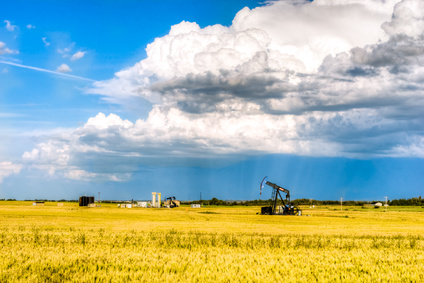The world prefers our oil and gas

Global energy demand will rise by 30 per cent between 2015 and 2040, according to the World Energy Outlook 2016 published in November by the International Energy Agency (IEA). And although renewable energy will play an increasingly important role, the IEA predicts that demand for natural gas will increase by 50 per cent over this period, largely at the expense of coal, which is much more polluting, while oil consumption will increase by 12 per cent.
Canada, of course, is a significant producer of oil and natural gas. We have the third-largest global reserves of crude, and we are the fifth-largest producers of natural gas. Given the difficulties encountered by our oil and gas industry in getting its products to market, however, we might well wonder if consumers even want Canadian oil and gas products.
Two recent polls shine a light on the opinions of Canadians and of the citizens of 31 other countries when it comes to Canadian petroleum products. The results may be surprising to some.
One poll, carried out by Leger on behalf of the MEI, canvassed the opinions of Quebecers; a second, much wider poll, carried out by Ipsos on behalf of the Canadian Association of Petroleum Producers (CAPP), polled the citizens of 32 countries from all around the world.
Let’s start with the perceptions of Canadians. Two-thirds of Quebecers (65 per cent) prefer that the oil consumed in Quebec come from Western Canada rather than from outside the country, according to the Leger poll. Some 68 per cent of all Canadians feel the same way, according to Ipsos. Quebec, often presented as a province that is viscerally opposed to oil from Western Canada, is not such an exception after all when it comes to favouring Canadian oil. Among the 32 countries polled, Canadians ranked third in terms of preferring their own national production.
Another surprising result: Among the other countries polled by Ipsos, Canada is the most preferred choice for oil and natural gas imports, putting us at the top of the list of 11 producing countries. Canada no doubt benefits from fairly favourable perceptions on other topics, for example the existence of a national plan to reduce greenhouse gases and the importance extended to environmental considerations — and not just economic ones — in decisions concerning the development of oil and gas resources. Let’s be clear: Internationally, Canada is considered a responsible producer that maintains some of the strictest standards in the world.
Among the countries whose citizens see Canadian petroleum products in a very positive light, worth noting is the United States (our biggest customer… and also our main competitor in terms of hydrocarbons), but also India and China, where the growth in energy demand will be the greatest over the next 25 years.
Canadian citizens, including Quebecers, want Canadian oil. Clearly, the citizens of the rest of the world want some too. The demand for oil will continue to increase for at least 25 years. The question, therefore, is: What are we waiting for to eliminate the obstacles standing in the way of developing the infrastructure to transport Canadian oil and gas?
We need to have the courage to override the objections of a noisy and overrepresented minority suffering from BANANA syndrome: Build Absolutely Nothing Anytime Near Anybody. Instead, let’s build the safe, clean infrastructure we need to transport products that are essential and in demand. And let’s allow the whole world to benefit from Canadian energy and expertise.
Germain Belzile est chercheur associé senior, département des actualités, à l'IEDM. Il signe ce texte à titre personnel.

